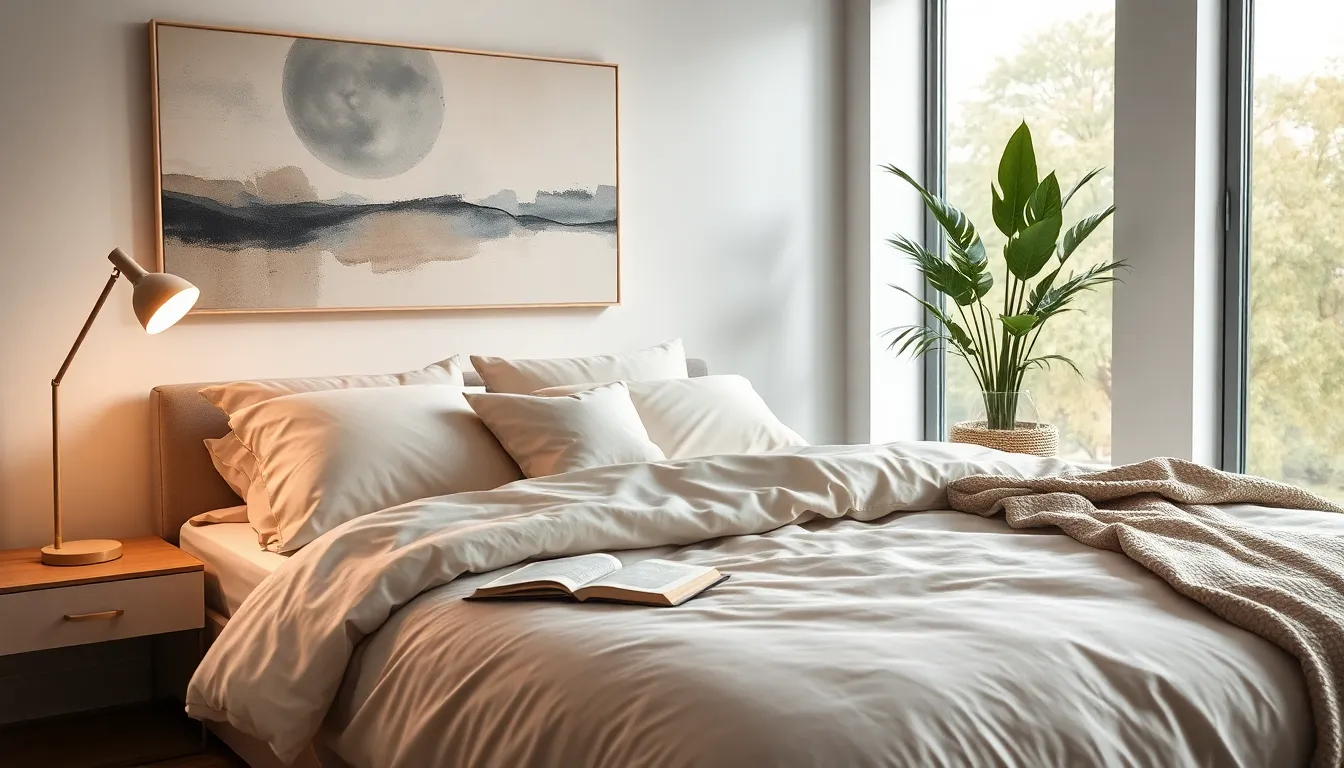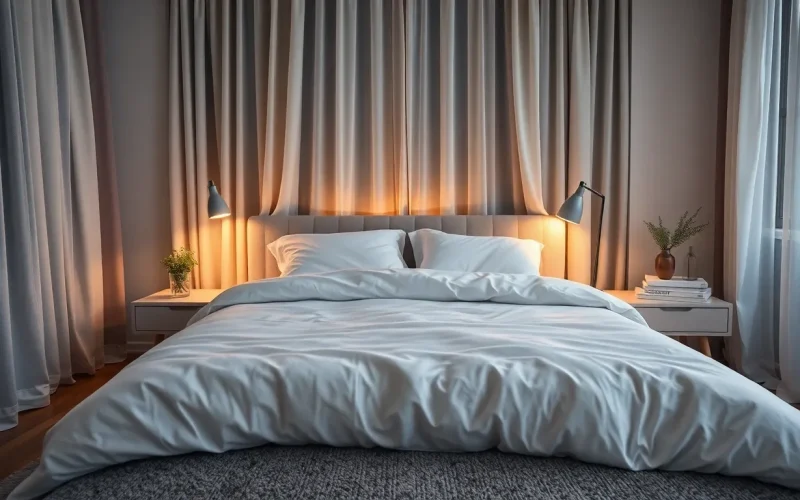Table of Contents
ToggleEver wondered why counting sheep doesn’t actually work? A restful night of sleep is more than just a cozy blanket and a quiet room: it’s the secret sauce for a productive day. Everyone deserves to enjoy the bliss of waking up refreshed, yet, for many, that’s a dream just beyond reach. Let’s jump into the intriguing realm of sleep, because your bed shouldn’t just be a place to rest, it should be your sanctuary for rejuvenation.
Understanding the Importance of a Restful Night

The Science Behind Sleep and Restfulness
Sleep isn’t just a passive activity. It’s an active process vital for cognitive function, emotional well-being, and physical health. During sleep, the brain consolidates memories, and the body repairs itself. Ever notice how a good night’s sleep makes everything feel brighter and clearer? That’s your mind doing its housekeeping. Research shows that quality sleep strengthens neural connections, making learning new skills easier. When the sleep cycle is disrupted, the results can feel like a hangover without any of the fun.
Common Sleep Disorders and Their Impact
It’s not just bad habits keeping people awake. Sleep disorders like insomnia, sleep apnea, and restless legs syndrome affect millions, often without them even realizing it. Insomnia alone can lead to lingering fatigue, mood swings, and a decrease in productivity. Sleep apnea, on the other hand, can cause significant breathing issues during sleep, leading to even graver health concerns. The good news? Awareness is the first step toward a restful night, and treatments are available.
Creating the Optimal Sleep Environment
Tips for Establishing a Relaxing Bedtime Routine
Routine can be a game-changer. Establishing a consistent bedtime routine signals to the body that it’s time to wind down. Aim to begin winding down about an hour before sleep, lowering lights, and putting away screens. Engage in calming activities like reading or meditative breathing. Some may even find that a warm bath enhances their relaxation efforts. The goal is for your brain to associate activity with sleepiness.
The Role of Diet and Exercise in Sleep Quality
Believe it or not, those choices at dinner can influence your snooze. Heavy meals close to bedtime might lead the body into a confusing state where digesting takes precedence over resting. Similarly, regular physical activity can significantly improve sleep quality. It’s best to finish exercise a few hours before bed, as working out too close can cause too much adrenaline to keep one awake. Balanced nutrition paired with activity creates a solid foundation for restfulness.
Natural Remedies and Sleep Aids
Mindfulness and Relaxation Techniques for Better Sleep
Managing stress can be the antidote to sleepless nights. Mindfulness meditation, deep-breathing exercises, and even gentle yoga can help calm racing thoughts. Anyone who has laid in bed replaying their day understands the need for mental relief. By shifting focus away from the day’s stressors, individuals can create mental space that fosters relaxation, leading to better sleep.
Cognitive Behavioral Therapy for Insomnia (CBT-I)
Cognitive Behavioral Therapy for Insomnia, or CBT-I, is an effective treatment approach that helps tackle the underlying issues around sleep. This therapy aims to change the negative thoughts and behaviors that contribute to the inability to sleep. Instead of simply relying on sleep medications, many find lasting results through this method, promoting healthier sleep habits and providing long-term relief.





